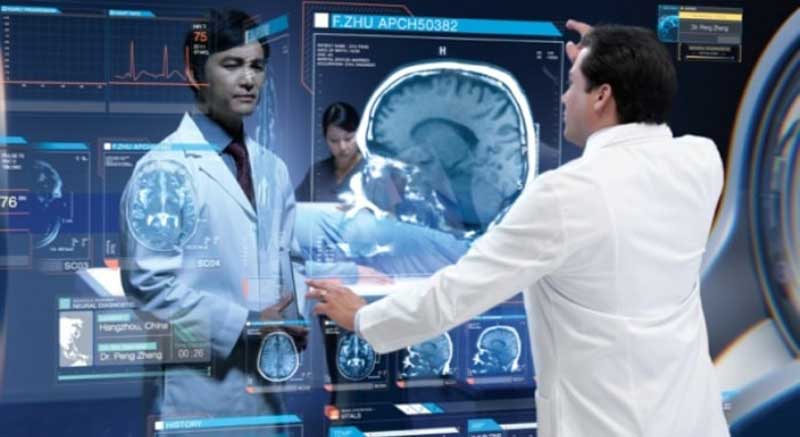How Technology Will Change The Future Of Healthcare
The Future of Healthcare: A Technological Revolution on the Horizon
- Artificial Intelligence (AI)
- Telemedicine and Remote Monitoring
- 3. Digital Therapeutics and Gamification
- 5. Big Data and Analytics
- Challenges and Considerations
The healthcare landscape how technology will change the future of healthcare is undergoing a transformative shift driven by advancements in technology. From personalized medicine to AI-powered diagnostics, these innovations hold immense potential to revolutionize the way we approach healthcare. Let’s delve into some of the most promising technologies shaping the future of healthcare.Follow for more Blow Foam
1. Artificial Intelligence (AI):
- Enhanced Diagnostics and Treatment Plans: AI algorithms can analyze vast amounts of medical data, including patient records, imaging scans, and genetic information. This facilitates earlier how technology will change the future of healthcare and more accurate diagnoses, allowing for the development of personalized treatment plans tailored to each patient’s unique needs.
- AI-powered Virtual Assistants: Chatbots powered by AI can provide patients with 24/7 access to basic medical information, answer questions about medications, and even offer preliminary symptom analysis. This can empower patients and alleviate strain on healthcare providers.
- Robot-Assisted Surgery: Surgical robots, guided by AI algorithms, can perform minimally invasive procedures with greater precision and control. This can lead to faster recovery times, reduced how technology will change the future of healthcare scarring, and improved surgical outcomes.2. Personalized Medicine:
- Precision Medicine: Advances in genomics allow for a deeper understanding of an individual’s genetic makeup. This paves the way for personalized medicine, where treatments are tailored to a patient’s specific genetic profile and risk factors.
- Predictive Analytics: By analyzing large datasets, healthcare how technology will change the future of healthcareproviders can identify patients at high risk for developing certain diseases. This allows for early intervention and preventative measures, potentially improving patient outcomes.
2. Telemedicine and Remote Monitoring:
- Virtual Doctor Visits: The rise of telemedicine allows patients to consult with healthcare providers remotely through video conferencing or chat platforms. This can improve access to healthcare for those in remote areas or with mobility limitations.
- Remote Patient Monitoring: Wearable devices and implantable sensors can continuously track vital signs, blood sugar levels, and other health parameters. This allows for real-time monitoring of patients’ health, enabling timely interventions in case of emergencies.
3. Digital Therapeutics and Gamification:
- Mobile Apps for Health Management: Smartphone applications can provide personalized guidance on nutrition, exercise, medication adherence, and mental health management. These apps can empower patients to take a more active role in their health and well-being.
- Gamification for Behavior Change: Incorporating game mechanics into healthcare apps can increase patient engagement and motivation. For example, earning points or badges for completing healthy activities can encourage positive behavioral changes.
4. Big Data and Analytics:
- Understanding Disease Patterns: Analyzing large datasets of patient information can reveal trends and patterns in disease outbreaks and progression. This allows for the development of more effective public health strategies and targeted interventions.
- Clinical Trial Optimization: Big data can streamline how technology will change the future of healthcare clinical trials by identifying potential participants with the most relevant characteristics, leading to faster and more efficient drug development.
5.Challenges and Considerations:
- Privacy and Security: As healthcare data becomes increasingly digital, ensuring robust data security and patient privacy is paramount. Clear regulations and ethical guidelines are needed to protect sensitive patient information.
- Access and Equity: Ensuring equitable access to these new technologies is crucial. Bridging the digital divide and providing affordable healthcare solutions for all is essential to reap the full benefits of technological advancements.
- The Human Touch: While technology plays a critical role, human interaction remains irreplaceable in healthcare. Building trust and fostering a strong doctor-patient relationship will continue to be vital aspects of healthcare delivery.
Conclusion:
Technological advancements are poised to revolutionize the way we approach how technology will change the future of healthcare healthcare, offering greater personalization, improved access, and potentially better outcomes. However, addressing ethical concerns and ensuring equitable access remain paramount. As we navigate this technological revolution, the ultimate goal remains the same: to deliver the best possible care for all.





